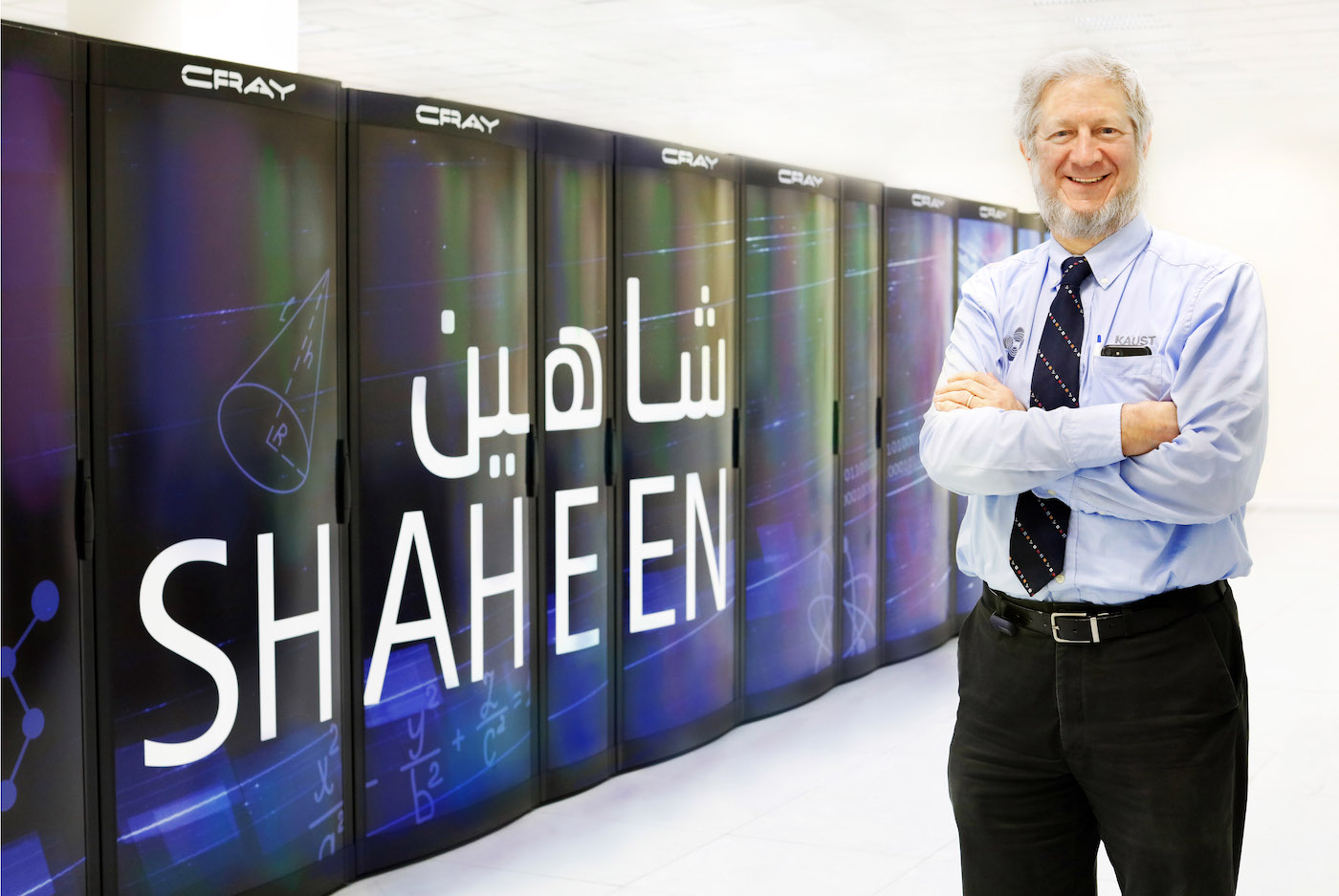Keyes and colleagues take part in historic ISC

KAUST Professor David Keyes, director of the KAUST Extreme Computing Research Center (ECRC) and professor of applied mathematics and computational science, chaired this year’s International Supercomputing Conference (ISC).
KAUST Professor David Keyes, director of the KAUST Extreme Computing Research Center (ECRC) and professor of applied mathematics and computational science, chaired this year's International Supercomputing Conference (ISC). The ISC, which takes place in Frankfurt, Germany every June, is where the world's supercomputers are re-ranked for computational power, power efficiency, and performance on various scientific benchmarks.
Given that the world is running virtually due to the COVID-19 pandemic, the ISC 2020 organizing committee, led by Keyes, set a precedent for the world's longest running supercomputing conference. The event was fully digital, with both live-streamed and pre-recorded events.
This year's event also witnessed a record registration of 4,735 specialists in high-performance computing (HPC).
"This demonstrates a comfortable migration of the computational community to the internet, which, in fact, is its own invention!" said Keyes. "Live conferences in which vendor exhibits are a critical part, such as ISC High Performance cannot be virtualized and will always have a niche. However, it seemed opportunistic in this year of the pandemic pause to not simply maintain a brand for existing participants but stake out a brand for new participants. This was part of our objective for Digital ISC 2020, and it is a very significant mandate, indeed!"
The event gathered supercomputing experts from around the world to the opening award ceremony where the new Japanese supercomputer "Fugaku" (the Japanese name for Mount Fuji) took honors atop the TOP500, the Green500, the Graph 500, and the HPCG lists.
The research papers were already selected when the pandemic shutdown occurred and have been published in the usual proceedings. Though pre-recorded, they will be unveiled in program sequence.
A highlight of the technical papers is a Saudi entry lead-authored by two KAUST Ph.D. students in Computer Science, Noha Al-Harthi and Rabab Al-Omairi. Their paper on computationally simulated acoustic scattering won the 2020 Gauss Award from the Gauss Center for Supercomputing in Germany for the top contribution to HPC among all papers submitted to the conference.
A special session of ISC 2020 Digital was devoted to the global mobilization of supercomputing to mitigate the threats of the COVID-19 pandemic. The KAUST Shaheen II Cray supercomputer is one of the dozens from around the world engaged in fighting the pandemic. Shaheen II is serving cycles to nine projects by in-Kingdom research teams at five universities.
By going digital rather than skipping a year, ISC in its 35th year, remains the longest continuously running conference dedicated to advancing the science, technology, applications, ecosystem, and art of high-performance computing.
Keyes is the first ISC chair from a Middle Eastern institution. He previously chaired the technical program of the US-based counterpart Supercomputing Conference (SC), which draws over 13,000 physical participants, in 2018.
Related stories
- Shaheen serves COVID-19 research in the Kingdom
- AI that's built to save lives
- KAUST scientists win prestigious Gauss Award

